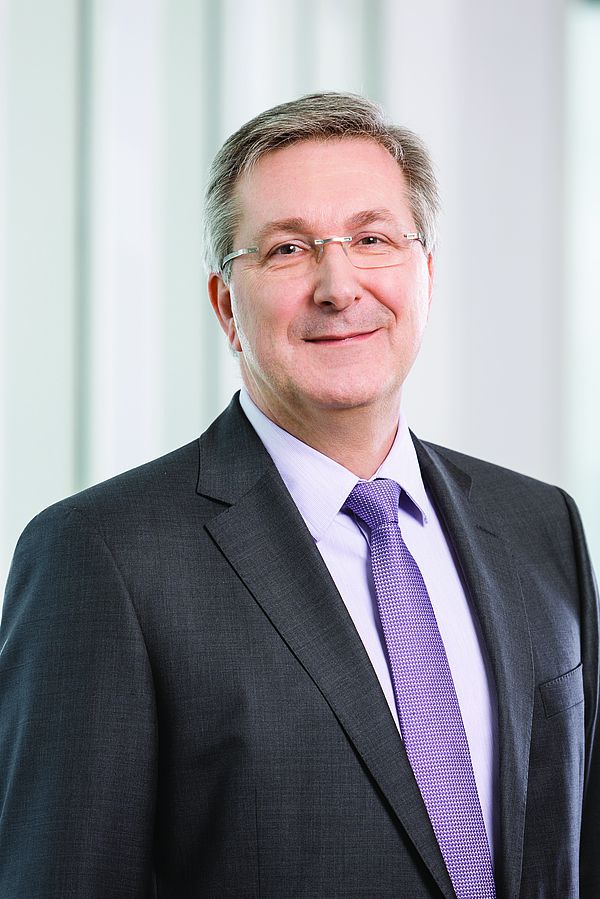Burkhard Dallosch, Managing Director of Deka Immobilien on cooperation with MeteoViva
Deka wants to reduce the CO2 emissions of its fund properties. Beyond climate protection, what benefits do you expect from the implementation of MeteoViva Climate?
„In addition to the aspired active reduction of the CO2 footprint, there are other important reasons for Deka to choose MeteoViva's technology. The increase in energy efficiency highlights the tenant needs and aligns the operation of the technical systems to their individual requirements. We are convinced that this will lead to a higher level of tenant satisfaction, which in turn will increase the tenant’s loyalty. As one result, lower re-letting costs can be achieved. This in turn can have a positive effect on the return of the special funds, which initially contribute to the implementation with appropriate financing.
The model-based system operation of MeteoViva is beneficial as it allows us an individual setting of the systems for heating, ventilation and cooling. At the same time it also allows us to draw conclusions from one building for similar systems in other buildings. To allow this, a large amount of information about the building operation and user behaviour as well as energy consumption needs to be stored in a central system.
With MeteoViva's energy monitoring system, we have the possibility to display all energy consumption centrally in an analysis and reporting tool. The central recording should help to identify weak points and inefficiencies in the BMS at an early stage as well as reasons for high energy consumption. From this, appropriate optimisation and maintenance measures can be derived and initiated.“
What other measures are you taking to keep the building portfolio fit for the future?
„In addition to implementing MeteoViva Climate, Deka has been focusing for some time on reducing the CO2 footprint for the property portfolio. As an important measure in this respect, the procurement management was able to purchase the energy consumption influenced by the Deka funds in Germany as bundled green electricity. Maintaining this procurement strategy in the long term is costly, but contributes to the current and future ecological requirements.
However, regular maintenance and modernisation of the buildings is also an essential aspect for a sustainable fund provider. To this end, our project managers and real estate managers regularly examine the buildings for their marketability with regard to rentability and, if necessary, refurbish them. This is also the time to further improve the energy efficiency of these buildings.
Since 2018, a sustainability filter has also been used to invest the fund liquidity of public and special funds in DekaBank's Real Estate Business Division. The core of this filter is based on the ten principles of the UN Global Compact and excludes various controversial business areas. As of 31 December 2018, around EUR 5.4 billion were managed using the filter. Consequently, we do not only cover real estate-related energy efficiency aspects.“
What is the role of digitisation in this?
„For us, digitisation is a key driver and an essential prerequisite for the implementation of current and future requirements in the direction of sustainable real estate portfolios. The decisive factors for the successful and sustainable orientation of our business model will be the quantity and, above all, quality of the data that we implement as part of the digitisation in our business processes. Here, for example, we are already gradually gaining experience with robot technology and the use of artificial intelligence in the analysis of documents and data. Ultimately, improved processes should generate added value for our investors in the form of increased sustainability.“
Do you expect further regulatory requirements for investment companies in terms of climate protection?
„Definitely yes. Through the association's work (BVI, ZIA), we accompany the developments in the „Sustainable Finance“ regulatory process and already know today that we will have to expect further requirements for the financial industry in the future. This is already evident in the disclosure ordinance that has been passed, which will oblige us as asset managers to take a more sustainable approach. We expect significantly greater documentation requirements for sustainability issues in the future, which will also be included in more far-reaching reporting guidelines and obligations.“
